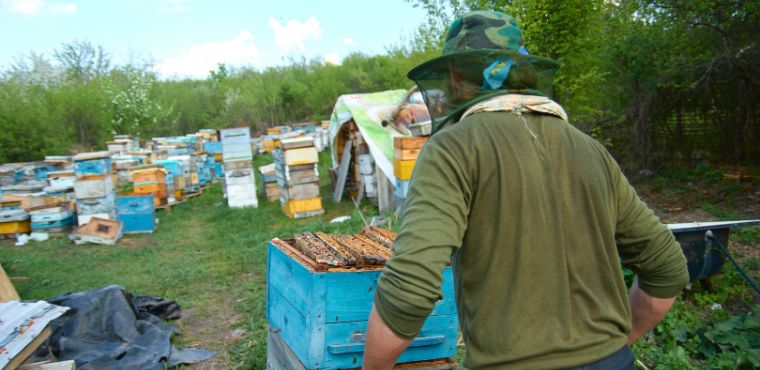Bee populations are declining worldwide due to habitat loss, pesticides, and climate change. Because of these three troubling problems, our plants are at stake. All the pollen collected from plants helps foster the growth of fruits and vegetables; without our pollinators, our favorite foods may be scarce to the point they’re non-existent. You can learn how to improve the bee population in your community by reading this blog.
Provide Water Sources
Bees are like us in some ways, such as needing water to survive. Access to water is vital for bees, especially for colonies calling urban areas home. You can improve water access for your buzzy neighbors by filling a shallow container with water and placing pebbles around to blend it with the community garden. The stones also give bees a place to land while they drink without the risk of drowning.
Create Nesting Sites for Bees
Bees are innovative creatures; the queen bee lays eggs in honeycombs during the winter, but they also lay eggs in the ground. Over 20,000 bee species lay eggs in underground nests. However, other species nest aboveground. You can create a secure bee nesting site by building a “bee hotel” from wood blocks, arranged logs or sticks, and hollow reeds. Place these nesting pods in a sunny area with tons of flora nearby.
Educate the Community About Bees
Many in the community aren’t aware of the vitality of bees in our ecosystem and the problems they face. Educating your friends, family, and neighbors about the importance of bees and what they can do to help is essential. Consider organizing a community event like a bee-friendly garden workshop or community planting day.
Plant a Pollinator Garden
One of the easiest ways to increase the bee population in your community is by creating a pollinator garden. A pollinator garden is essential because it helps the reproduction of fruits, vegetables, and flowers throughout the year. You can create your bee-friendly garden by adding sunflowers, lavender, and bee balm. Try native plants, as they attract more bees and require less maintenance. Be sure to plant various flowers that bloom at different times of the year to provide bees with a continuous food source.
Limit Pesticide Use
Overuse of pesticides can hurt the bee population. The effects of pesticides harm the global bee population by modifying their ability to navigate, reproduce, and learn. Control how much pesticide you use, such as only using it in the morning or evening when bees aren’t active or using a different pesticide with natural ingredients. Try using other organic pest control methods, like adding ladybugs or lacewings to your garden.
We can create a richer ecosystem by focusing on rebuilding insect and animal populations, starting with the bee colonies. By utilizing these steps, you can create a bee-friendly community garden that improves the bee population and produces fresh crops of fruits, vegetables, and flowers for all to enjoy.






